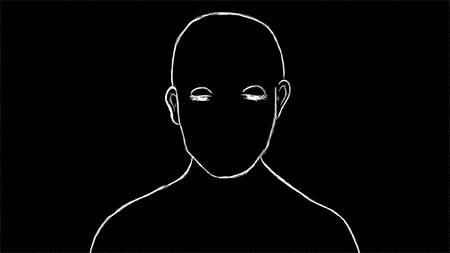“People are often very surprised when I say that I’ve experienced anxiety, depression, that I’ve had moments at times, in my companies, my career, where I just didn’t want to get out of bed.” - Justin
In 2017, an estimated 548 million people worldwide reported experiencing symptoms of depression or anxiety. 1 Included in that statistic are the individuals we idolize, deify, and project our conflated visions of success and happiness onto. Depression and anxiety aren’t only limited to the experience of being ’sad’ or ‘down’. While they are symptoms, depression and anxiety are often chronic experiences of dissociation or fear.
The truth is, all your favorite icons are going through something. Since day one, The Quest has embodied this creed by bringing you the human stories of both success and pain from those who have ‘made it’. It’s easy to look at how people are doing now, and think that they have a perfect life. The rose-tinted lens of social media only exacerbates the problem; people only choose to exhibit the most flattering snapshots amongst a whole range of human experiences and struggles.
There is no external conquest that transcends your humanity. Material resources like money may remedy acute problems and free you up to discover what truly brings you fulfillment, it can’t figure it out for you. Being a successful CEO or Founder can’t change that for you either, especially when that role becomes part of your identity and chained to your intrinsic worth. You become enslaved to the success and failures of your company.
In 2013, Justin was running Exec, a failing errand service company. Guilt gripped him; he knew that grand promises of a trillion-dollar company made to his investors and employees would soon evaporate.
“I just got this malaise, this kind of fog spread over me....every day it just felt like things were not working, and it was kind of like this downward spiral. And I remember in the mornings, I'd feel like I was sad to be awake. I wish that I had continued sleeping and it got to the point where I just didn't want to get out of bed. Everything that was happening seemed like it was going wrong.”
Imposter Syndrome is real - Justin anxiously awaited the day the curtain would lift and that the failure of Exec would reveal him as the fraud he felt like he was. He didn’t have the tools at his disposal to deal with difficult emotions like sorrow, guilt, sadness, or anxiety.
Unsurprisingly, a failed recognition of these emotions also led to a destructive coping system. Growing up as a shy kid, Justin’s eventual discovery of alcohol became a vice to relieve his anxiety in social situations. Discovering alcohol as a coping mechanism for negative emotions opened up another can of worms.
Even without drinking, Justin found other ways to suppress his emotions rather than letting them occur naturally and dealing with them. This came in the form of distractions, endlessly scrolling through Twitter, binge-watching seasons on Netflix, or going on trips. This emotional suppression is unhealthy because it conditions chronic despair. Emotions are signals from the brain, and we should pay ourselves the attention we deserve. If your body is responding and telling us that something isn’t right, ignoring or repressing it is the worst thing you can do, and it is the reason why depression and anxiety often last for long periods of time.
There is no cure for these conditions, but there are small actionable steps you can take. This is already significant, because moving with intention signifies that you have at least acknowledged your emotions.
“At the end of the day, I think happiness is about cultivating the faith that the universe is here to serve you, that even though you’re going through a difficult experience at this moment, there’s something to learn from it. There’s something that may benefit you down the road, you just don’t know what it is yet.”
Being mindful of the present
These two steps are linked and facilitate one another. Focusing on where you feel certain emotions in your body and remaining in the present instead of running away from it can be a valuable tool to take control of your mental state. If you feel guilt as a pit in your stomach, then try to really understand the sensation. It allows you to process it and come to terms with problems that might be causing it - firing someone, having a tough talk with a friend, or sorting out your personal relationship with a partner. Recognize the emotion, feel it, and then let it pass.
It also allows you to appreciate the psychological sensations of just being alive, despite the problems around you. Meditation is a powerful exercise that can train you to become more mindful of the present and not be avoidant of those kinds of experiences.
Small habits and exercise
Your mind inhabits the brain, an organ in your body like any other. Training your avatar to deal with stress is equally important to training your mind. You don’t need to step into the gym and deadlift 500 pounds. Depression can make anything seem like a gargantuan task, much less putting your body through a physically demanding process. Establishing a minimum bar like going for a walk every morning and building from there is the most effective way to achieve your goals. Your small incremental investments will compound as you build habits on top of each other and you’ll start to feel much better day by day.
Perspective
Under a microscope, the problems you are experiencing may seem insurmountable. Try to zoom out a little and visualize things in the context of larger scales. When Justin’s vision for Exec failed, he felt like everything was falling apart. Objectively, it was not a good outcome for anyone involved. In that contained scope, it might have seemed like the end of the world.
The company was sold (not for what was promised), but people moved on. Laid off employees found better jobs elsewhere. Daniel Kan, Justin’s younger brother and Exec co-founder, went on to start Cruise, a very successful self-driving car company which was acquired by General Motors for over $1 billion in 2016.2 The failure of Exec freed Justin up to join YC as a partner, opening him up to the fulfilling world of investing. The failure of Atrium pushed him to discover his love for content creation and pursue meaning instead of mercenary achievements.
“Things that you think are a huge deal in one direction today may be the thing that launches you on the path that you’re ultimately supposed to be on.”
Therapy
The heavyweight solution to the problem is seeking professional counsel. No one is above getting help when it’s needed, and admitting that does not make you a weaker person. It takes incredible courage to confront your emotions, but sometimes it can be too overwhelming on your own. Seeking someone who is a good fit, talking about your experiences and having reflections can be incredibly powerful, especially because it can help you find a direction. Depression and anxiety can often feel like treading in an ocean to keep your head above water; you can’t swim to shore if you are only focused on trying not to sink. Having someone throw you a rope might be what you need.
Anxiety and depression is very common. Take some comfort in knowing that everyone out there experiences it from time to time and that you are not alone.
Watch Justin’s full video on the topic here:
If you or anyone you know is suffering from symptoms of anxiety, depression, or other similar conditions, please know that help is always available.
You can always talk to someone by calling the Lifeline number, 1-800-273-8255 (TALK).






